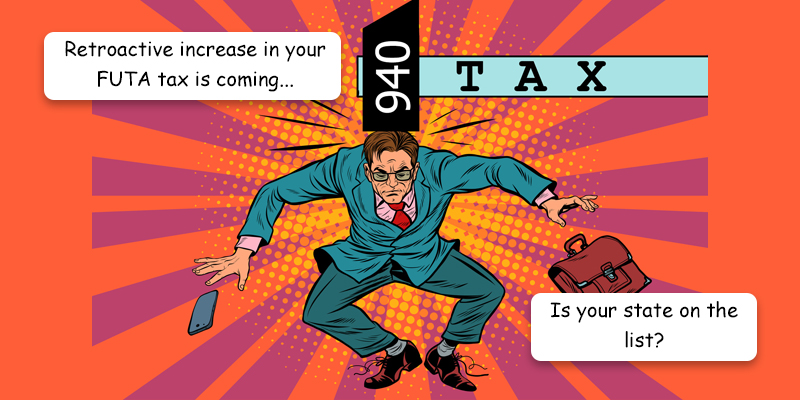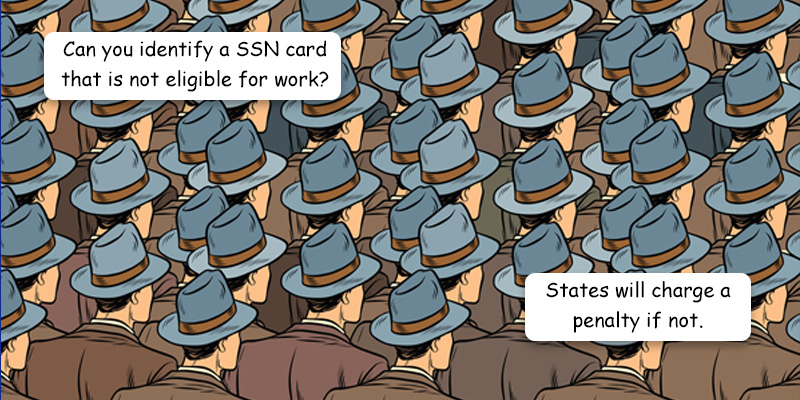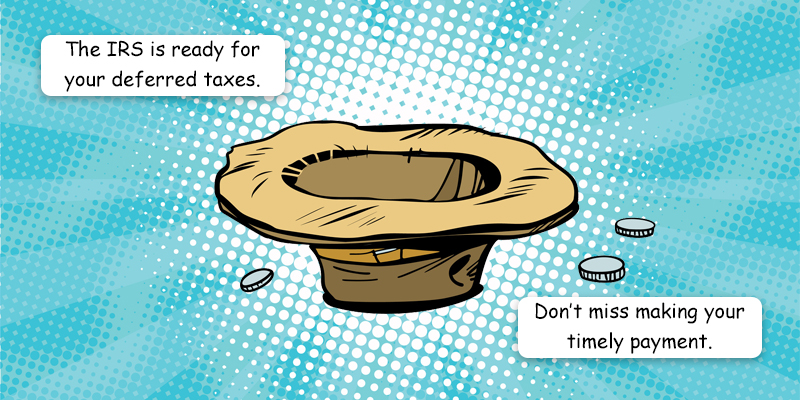Overtime. It is a subject that you may think you know well, but do you? It is not always a simple matter of paying the employee “time and a half” for any hours worked in excess of 40 hours in a workweek. There is much more to take into consideration, and while this article is not intended to cover every scenario out there, we will touch a number of bases. What we will not cover, this time around, is who may be exempt from overtime. Let’s start with the federal law, where the overtime provisions are contained in the Fair…
Posts published in “Uncategorized”
Under the provisions of the American Federal Unemployment Tax Act (FUTA), a federal tax is levied on employers covered by the Unemployment Insurance program at a current rate of 6.0% on wages up to $7,000 a year, paid to a worker. The law, however, provides a credit (basically a discount) against federal tax liability of up to 5.4% to employers who pay state taxes timely under an approved state UI program. Therefore, the employer pays an effective federal tax of 0.6% or a maximum of $42 per covered worker, per year. During times of high unemployment claims, a state may…
Over two decades ago, as a result of 9/11, President G.W. Bush signed the Uniting and Strengthening America by Providing Appropriate Tools Required to Intercept and Obstruct Terrorism (The PATRIOT) Act of 2001 into law. One purpose of the PATRIOT Act is to deter and punish terrorist acts in the United States and around the world by putting in measures to prevent, detect and prosecute money laundering and financial terrorism. One may ask themselves, what does this have to do with payroll? Plenty. The Act states that all individuals and organizations within the United States are responsible for ensuring that…
The last time I wrote about Social Security Numbers (SSNs) over four years ago, it was a fun and educational piece about the history of the SSN. You can check it out at this link: https://blog.paymaster.com/a-history-and-education-about-the-ssn/ These days, the SSN has become more important than ever, and it is of utmost importance to get it right. Of course, you should always get the SSN right for compliance with the Department of Homeland Security and the IRS, but that does not always happen. The filing of state employment and unemployment taxes has become more sophisticated over the recent years by utilizing…
We are finally getting back to a state of normalcy, so the experts say. Some are going back to their offices, others are getting back to their busy business travel schedules, while others have found that productivity has not been negatively affected by being remote and have made the decision to stay that way. One of the things people have enjoyed about working from home is having more time with their pets. Over the past two years, pet adoptions have increased tremendously for a litany of reasons. Some people were alone and needed companionship while others finally had the time…
Whether you call it ‘earned wage access’, ‘instant pay’, ‘on-demand pay’, ‘pay on-demand’ or ‘wages on-demand’, this employee benefit is one of the fastest growing employee wellness programs in the market. Nearly 3 out of every 4 U.S. employees (72%) want access to their wages before their pay day, according to The UKG Workforce Institute study. With the increasing demand, there’s been a massive explosion in the number of companies offering earned wages on-demand to employees. You will find many employment ads that state “work today, get paid tomorrow” in their job offering. It is becoming a competitive advantage for…
Over the next few weeks, as your employees start to receive their 2021 W-2 form, they will most likely have many questions as to what all those numbers mean. For example, it is not uncommon for a salaried employee who earns $50,000 per year question why their Box 1 Wages only reflects $45,000. Did they get underpaid? Probably not. If the employee contributes to a pension plan (aka 401(k)) or has pre-tax insurance deductions, then those amounts reduces the “taxable” wage, which is what appears in Box 1. Some employees may also wonder why their Federal Income Tax withheld is…
While the Federal minimum wage remains at $7.25 per hour, 27 states and many cities, counties and locals have set increases effective January 1st, 2022 with a few announcing a change during 2022. Many states continue their path to $15.00 per hour and you will now find places in Washington state that have a minimum wage over $17.00 per hour. A list of each state/local, along with the new hourly rate is listed below. Any state that does not have a minimum wage change scheduled is not listed. All rates are effective January 1st, 2022 unless otherwise noted. Alaska: $10.34 Arizona: $12.80…
On October 28, 2021, the U.S. Department of Labor (DOL) issued a Final Rule, which takes effect on December 28, 2021; it is extremely important for businesses that pay the lower “tipped minimum wage” to take notice. In this final rule, the DOL finalizes its proposal to withdraw one portion of the Tip Regulations Under the Fair Labor Standards Act (FLSA 2020 Tip Final Rule) and finalize its proposed revisions related to the determination of when a tipped employee is employed in dual jobs under the Fair Labor Standards Act of 1938. Specifically, the Department of Labor is amending its…
The Coronavirus Aid, Relief, and Economic Security (CARES) Act that passed in March 2020 allowed businesses to defer paying their employer share of Social Security (OASDI) taxes through the end of that year. This allowed businesses to hold on to a portion of their tax liability to get through any cash-strapped times caused by COVID-19 and basically, have an interest-free loan for a long period of time. The deferred tax would then become due in two equal installments, with half due on December 31, 2021 and the remainder due on December 31, 2022. Here we are at the start of…










